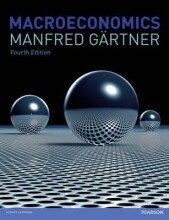Money, Banking and the central Banking system - determining the money supply
3 important questions on Money, Banking and the central Banking system - determining the money supply
What is the disadvantage of not having banks?
- there would be no chequable deposits: the quantity of currency in circulation would equal the money supply
- money supply would be controlled only by the government who controls the printing
Do banks help in the creation of money? In what 2 ways do they affect the money supply?
- Banks remove some currency from circulation:
- dollar bills that are sitting in bank vaults as opposed to sitting in people wallets, are not part of the money supply
- banks create money:
- by accepting deposits and making loans , they make the money supply larger than the value of the currency in circulation
What happens in the first creation of money supply?
- The initial deposit will serve not as money in circulation but as a deposit, in which the bank will create a demand deposit for the depositor.
- this initial stage has no effect on the money supply
- when the initial depositor deposits their money, that money leaves the circulation, and the money supply falls by that amount
The question on the page originate from the summary of the following study material:
- A unique study and practice tool
- Never study anything twice again
- Get the grades you hope for
- 100% sure, 100% understanding































